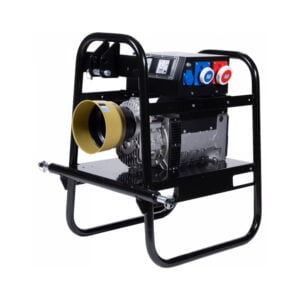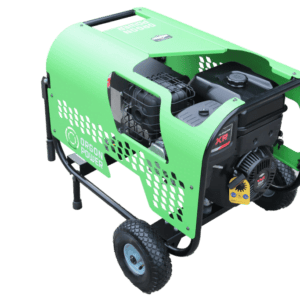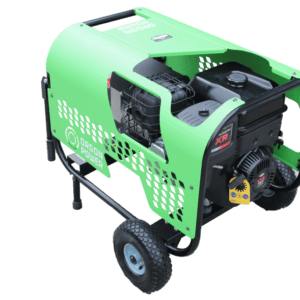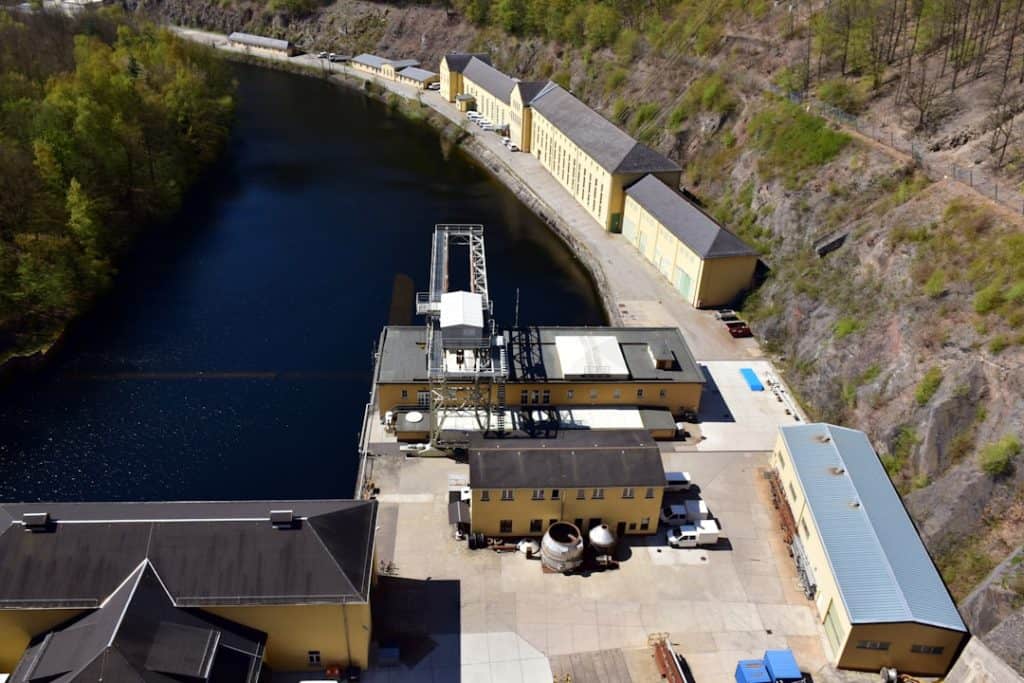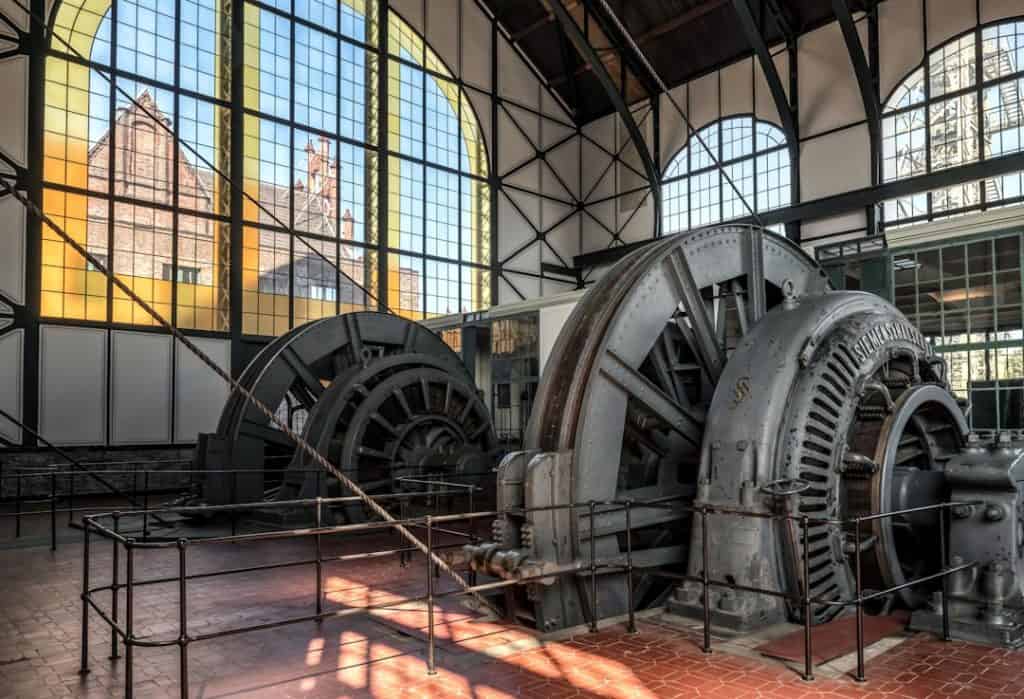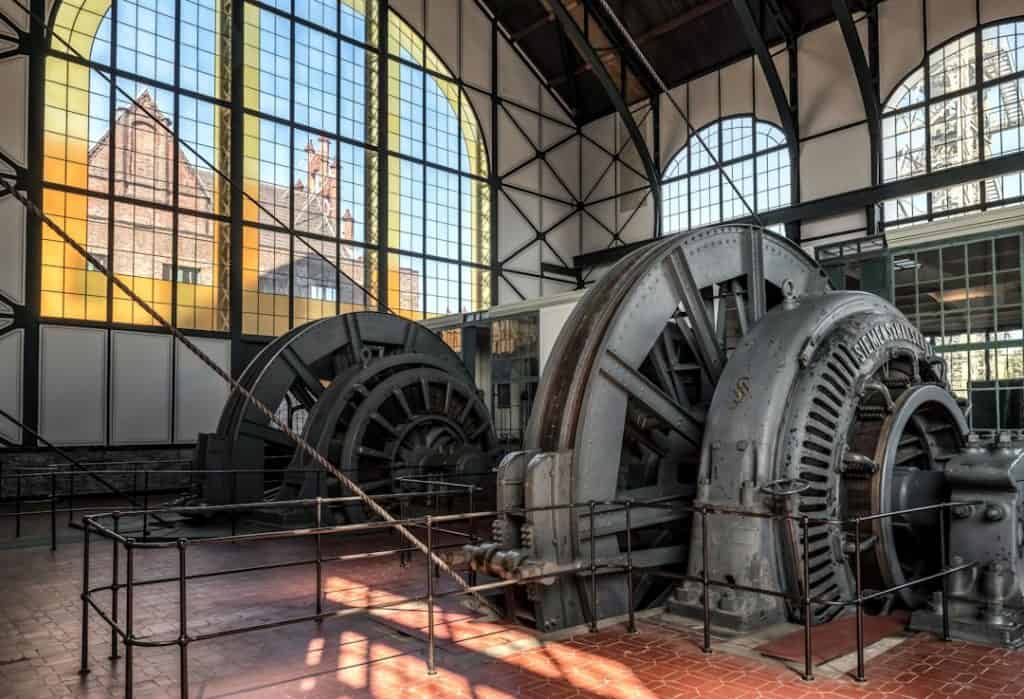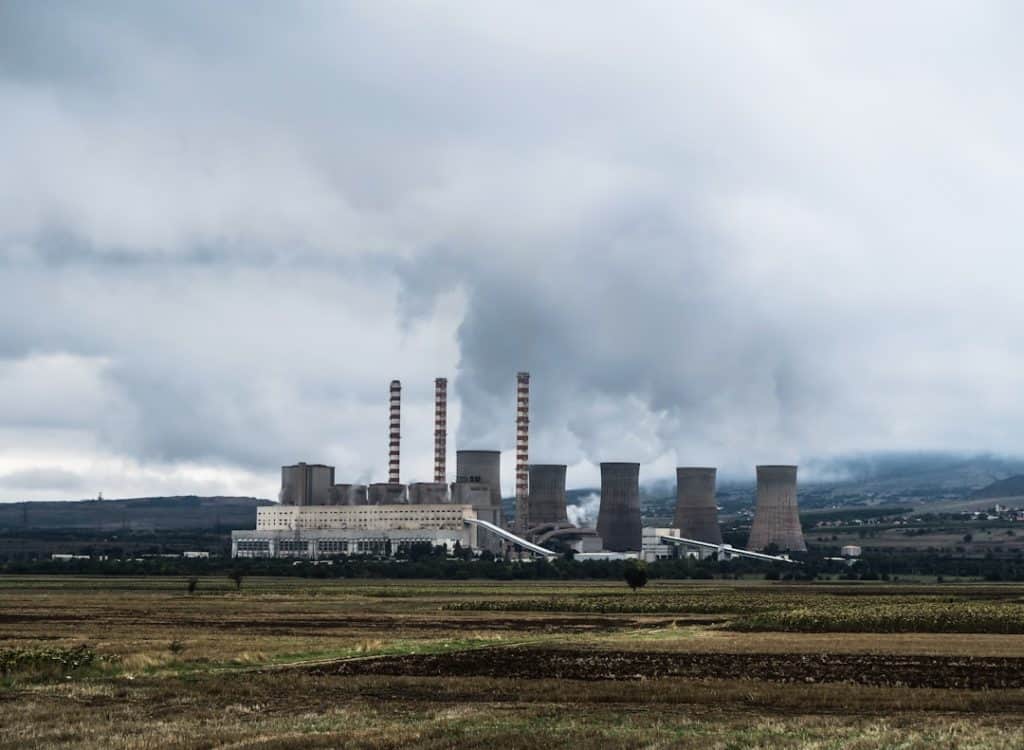Industrial power generators are a key component in the infrastructure of many companies around the world. These devices ensure a continuous supply of electricity in cases where there is an interruption in the regular supply from the electricity grid. Their primary function is to maintain business continuity, prevent data loss and protect critical systems.
In the modern business environment, where most operations are dependent on electricity, industrial generators have become a necessary piece of equipment. They are particularly important for maintaining the safety and functionality of life and property protection systems. Without these devices, many companies would be exposed to significant risks, including production disruptions and potential financial losses.
Industrial aggregates also play a key role in emergency situations, such as natural disasters, floods or fires. In such circumstances, they allow businesses to continue operating, thereby minimizing the risk of loss of revenue and maintaining business continuity. This ability to provide reliable power supply in crisis situations makes industrial generators an essential part of the risk management strategy for many organizations.
The importance of industrial generators for electricity is reflected in their ability to ensure the stability and safety of operations in different conditions. They represent a key component in maintaining operational efficiency and protecting critical business processes from unforeseen power outages.
Key Takeaways
- Industrial power generators play a key role in maintaining business continuity
- There are different types of industrial generators with different characteristics, including power, size and fuel
- Key factors for the efficiency of industrial generators include reliability, performance and economy
- Regular maintenance of industrial aggregates is essential for extending their working life and preventing breakdowns
- When choosing an industrial generator, it is important to consider the needs of the business, as well as the specific characteristics of the generator, such as power and efficiency
- Effective use of industrial generators includes proper planning, regular testing and monitoring of fuel consumption
- Industrial generators for electricity have a significant impact on environmental protection, so it is important to choose a generator that is environmentally friendly and efficient in fuel consumption.
Types of industrial generators for electricity and their characteristics
Diesel aggregates
One of the most common types of industrial generators is the diesel generator, which is used to produce electricity in situations where more power and long-term supply is needed. Diesel generators are known for their reliability and efficiency, and are often used in industry, construction, and emergency services.
Gasoline aggregates
In addition to diesel generators, there are also gasoline generators that are used in situations where less power is needed and when the generator needs to be transported to different locations. These aggregates are suitable for use in the field, as well as for temporary electricity supply needs.
Gas aggregates
There is also the possibility of using gas aggregates that use natural gas or propanebutane as an energy source. These aggregates are more environmentally friendly and economical to use in certain situations.
Key factors for the efficiency of industrial power generators

The efficiency of industrial power generators depends on several key factors. One of the most important factors is the aggregate power, which should be adequate to the needs of the company or industrial plant. Also, it is important to take into account the degree of reliability of the aggregate, as well as the possibility of automatic start-up in the event of an interruption in the supply of electricity.
In addition, the efficiency of the generator depends on the type of fuel it uses, as well as on the level of harmful gas emissions. Another key factor for the efficiency of industrial aggregates is regular maintenance and servicing. Regular maintenance is essential to extend the service life of the unit, as well as to maintain a high level of performance and reliability.
Also, it is important to take care of proper storage of fuel and maintenance of spare parts in order to ensure quick intervention in case of failure or problems with the generator.
The importance of regular maintenance of industrial power generators
| Type of industrial unit | Number of breakdowns without regular maintenance | Number of breakdowns with regular maintenance | Reduction of fuel consumption after maintenance |
|---|---|---|---|
| Diesel generator | 15 | 5 | 10% |
| Gas unit | 10 | 3 | 8% |
| Hybrid unit | 8 | 2 | 12% |
Regular maintenance of industrial power generators is of key importance for maintaining a high level of reliability, efficiency and safety of these systems. Maintenance includes regular checks of all key components of the generator set, oil and filter changes, cooling and lubrication system checks, as well as checks of the automatic start system and switches. Also, it is important to regularly test the operation of the aggregates to ensure that they are fully functional and ready for use in case of need.
In addition, regular maintenance allows identification of potential problems or malfunctions before more serious problems or interruptions occur. In this way, the risk of unforeseen costs of repairs or replacement of parts is reduced, as well as the risk of production loss due to aggregate failure. Also, regular maintenance can contribute to extending the service life of the aggregates, which can result in a reduction in the total cost of ownership of these systems.
How to choose the right industrial aggregate for your business
Choosing the right industrial aggregate for your business requires careful consideration of several key factors. First, the needs of the company in terms of the power and capacity of the generator, as well as the type of equipment that will be powered by electricity, should be taken into account. It is also important to take into account the length of time during which the unit will be used, as well as the possibility of portability if it is necessary to use it in different locations.
In addition, it is important to take into account the type of fuel that the generator will use, as well as environmental factors that may affect the choice of the appropriate generator. It is also important to consider the possibility of automatic start-up and remote monitoring of the aggregate operation in order to ensure a continuous supply of electricity without the need for constant monitoring. Finally, it is important to consider the company's budget in order to find an aggregate that meets the company's needs at optimal costs.
Tips for efficient use of industrial generators for electricity

Effective use of industrial generators for electricity implies careful planning and management of their operation in order to ensure maximum efficiency and reliability. One of the tips is to regularly test the operation of the generators to ensure that they are fully functional and ready for use in case of need. It is also important to take care of proper fuel storage in order to ensure its longevity and quality.
In addition, it is important to take care of the proper maintenance of the cooling and lubrication system in order to ensure the optimal operating temperature of the engine and extend the service life of the key components of the power unit. It is also important to take care of the correct placement of the unit in order to ensure adequate ventilation and air flow around the system to prevent overheating. Finally, it is important to take care of the proper shutdown of the generator after the end of its use in order to prevent unnecessary fuel consumption and extend the working life of the system.
The impact of industrial power generators on environmental protection
Industrial generators for electricity have a significant impact on environmental protection due to the emission of harmful gases during the fuel combustion process. Therefore, it is important to consider environmental factors when choosing an industrial aggregate in order to reduce the negative impact on the environment. One of the ways to reduce the environmental impact is to use gas aggregates that use natural gas or propane butane as an energy source.
These aggregates have lower emissions of harmful gases compared to diesel or gasoline aggregates, and represent a more environmentally friendly option. In addition, it is important to take care of the proper disposal of waste materials generated during the operation of industrial aggregates in order to prevent environmental pollution. Regular servicing of the exhaust gas filtration system is also important in order to reduce the emission of harmful substances into the atmosphere.
Finally, it is important to take care of proper fuel storage to prevent leakage or contamination of soil or groundwater. All these measures can contribute to reducing the negative impact of industrial aggregates on the environment and contribute to sustainable business development.
FAQs
What are industrial power generators?
Industrial power generators are devices that produce electricity using an engine that drives a generator. They are used to ensure uninterrupted power supply in industrial plants, construction sites, outdoor events and similar places where temporary or permanent power supply is required.
How do industrial power generators work?
Industrial power generators use an engine that drives a generator to produce electricity. The engine can be gasoline, diesel or gas, and the generator converts the mechanical energy of the engine into electrical energy that can be used to power various devices and machines.
What is the role of industrial generators for electricity in industry?
Industrial power generators play a key role in industry as they enable uninterrupted supply of electricity even in the event of a mains power failure. It is vital to maintain the continuous operation of machinery and equipment in industrial plants.
What are the advantages of using industrial generators for electricity?
The advantages of using industrial generators for electricity include the possibility of continuous supply of electricity, mobility and flexibility in installation, as well as the possibility of adjusting capacity according to needs. Also, they provide safety and reliability in case of interruption of the main power source.

